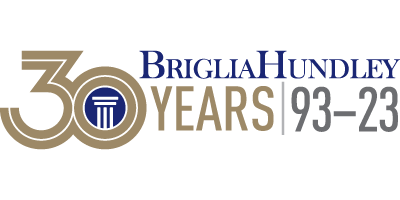Tortious Interference With Business
The right to performance of a contract is a property right entitled to protection in the courts.[1] Tortious interference with business occurs when a person intentionally damages another’s current or prospective contractual relationship with a third party.[2]
To establish a claim for tortious interference with business, a plaintiff must show: (1) the existence of a valid contractual relationship or business expectancy; (2) knowledge of the relationship or expectancy on the part of the interfering party; (3) intentional interference causing a termination of the relationship or expectancy; and (4) resulting damage to the party whose relationship or expectancy has been disrupted.[3]
More evidence is required to prove interference with a “business expectancy” than interference with an existing and enforceable contract. This is because one holding an expectancy of future economic gain has no assurance that the gain will be realized.[4] To establish a business expectancy, the plaintiff must prove a probable future economic benefit beyond a mere possibility of the benefit occurring.[5] Then, to prove interference with such an expectancy, proof that the defendant knew of the business expectancy and intentionally engaged in acts preventing its performance must be presented.[6] Critically, intentional interference with an expectancy must involve “improper methods.”[7] Improper methods of interference include acts that are illegal or independently tortious, such as violations of statutes, regulations, or recognized common-law rules. Methods may also be improper because they violate established professional standards or involve unethical conduct.[8]
Finally, whether proceeding on an existing contract or a business expectancy, damages resulting from the interference must be established. To obtain compensatory damages, the plaintiff must demonstrate with reasonable certainty that the defendant caused the claimed damages.[9] Sufficient facts must be established to support a damages award, but an exact amount does not have to be proven.[10] As this cause of action sounds in tort, punitive damages may also be available. To obtain punitive damages, the plaintiff must prove that the defendant willfully interfered with or destroyed the business relationship[11] in a particularly “egregious” manner.[12]
Tortious interference with business is a serious matter that can significantly affect a company’s financial wellbeing. Additionally, if a company or individual brings such a claim against you, you may have to pay significant monetary damages. This blog post is intended only as a brief overview of the law surrounding such claims. If you have concerns about tortious interference with business, please contact Briglia Hundley, P.C., at 703-883-0880.
—-
[1] Worrie v. Boze, 198 Va. 533, 536, 95 S.E.2d 192, 196 (1956).
[2] David N. Anthony, Tortious Interference with Contract or Business Expectancy: An Overview of Virginia Law, 32 VBA News J. 9 (2006).
[3] Chaves v. Johnson, 230 Va. 112, 120, 335 S.E.2d 97, 102 (1985)..
[4] Duggin v. Adams, 234 Va. 221, 226, 360 S.E.2d 832, 836 (Va. 1987).
[5] See Glass v. Glass, 321 S.E.2d 69, 77 (Va. 1984).
[6] Allen Realty Corp. v. Holbert, 318 S.E.2d 592, 597 (Va. 1984); Chaves, 335 S.E.2d at 102.
[7] Hechler Chevrolet, 230 Va. 396, 402, 337 S.E.2d 744, 748 (1985).
[8] Duggin v. Adams, 234 Va. 221, 227, 360 S.E.2d 832, 836 (Va. 1987).
[9] See MicroStrategy, Inc. v. Bus. Objects, S.A., 429 F.3d 1344, 1361 (Fed. Cir. 2005).
[10] Murray v. Hadid, 385 S.E.2d 898, 904 (Va. 1989).
[11] United Constr. Workers v. Laburnum Const. Corp., 75 S.E.2d 694, 708 (Va. 1953).
[12] Ross v. Sigley, No. 96-00129-H, 1998 U.S. Dist. LEXIS 3300, at *4 (E.D. Va. Jan. 30, 1998).
